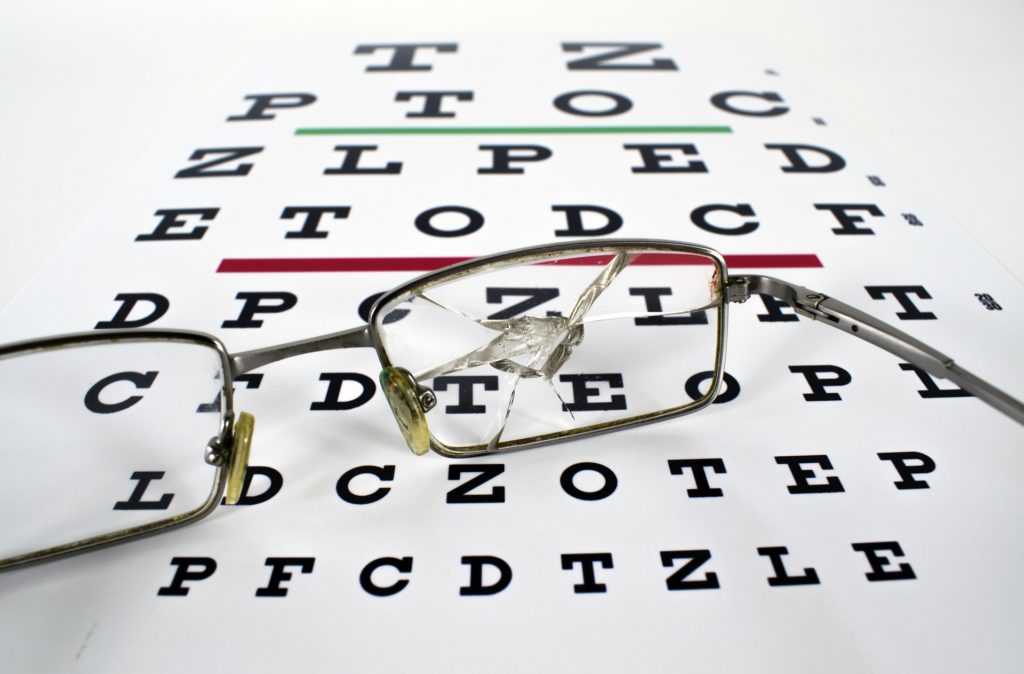Please note that not everyone with ADHD has the same experiences and I have only shared my own experience with it. I am not a mental health professional, however, I have taken all the scientific information from the peer-reviewed journals or books, the references of which are given.
A few months ago, at the age of 20, sitting on the chair with my uncontrollable moving legs and attentively reading the poster about cognitive psychology on my left side while completely ignoring my psychologist, who was patiently sitting and talking in front of me, I was given the diagnosis of ADHD (Attention Deficit Hyperactivity Disorder). Even at this crucial moment in my life, I got distracted again by some accessories present in his room and lost track of the conversation.
What is ADHD?
Attention Deficit Hyperactive Disorder or ADHD is a neurodevelopmental disorder as defined by the American Psychiatric Association in the Diagnostic and Statistical Manual (DSM).
International Classification of Diseases 11th Revision (ICD-11) characterises ADHD as a persistent pattern of inattention/hyperactivity that has a direct negative impact on academic, occupational and social functioning.
ADHD is diagnosed in both children and adults based on the symptoms of inattention, hyperactivity, and impulsivity.
An ADHD diagnosis requires a minimum of six symptoms that are beyond what is age-appropriate, it significantly impairs multiple aspects of life (home, work, school), has persisted for at least six months, has been present before the age of 12 and cannot be better explained by a different condition.
Based on these, the specialist typically categorizes a patient’s symptoms as one of the three discrete presentations of ADHD: Primarily Hyperactive-Impulsive Type, Primarily Inattentive Type, or Combined Type of both.

ADHD is on a spectrum which means there are different levels of severity of symptoms. ADHD can also be present with psychiatric comorbidities like depression, bipolar disorder or autism.
While everyone struggles with forgetfulness and distractedness, everyone does not have a physical difference in their brain.
In ADHD, the frontal lobe of the brain, which is responsible for the executive functions, is impaired. Because of it, people with ADHD cannot perform executive functions well. Executive functions has been defined as
- Organizing, prioritizing, and activating for tasks
- Focusing, sustaining, and shifting attention to task
- Regulating alertness
- Managing frustration and modulating emotions
- Utilizing working memory
- Monitoring and self-regulating action (Barkley, Russell A. 2008. ADHD in adults)
There is no cure for ADHD, but it is highly treatable, and there is no single treatment for everyone. The combination of medication (to manage symptoms) and behavioral therapy (to develop skills and strategies to minimize impairment) is recommended.
What is it like to have ADHD?
For me, who has the combination of both inattentive and hyperactive ADHD, it is full of excitement and adventure, experiencing everything with sheer intensity, lost in a vibrant dreamy world, constantly on a move, slamming through life like a fierce hurricane, leaving the crumpled papers and relationships in my path.
Following are some of my experiences with ADHD:
Galaxy Brain
On a pleasant day, I went to the library fully motivated to study for the upcoming chemistry exam.
But when I came back, I possessed all information from the beginning of the universe to the present political conflicts in Asia and read multiple pages of several books, which had no distant relevance to my exam.
Another day, while engaging in a serious conversation with a friend, I got distracted by the police officer who had just passed.

I started comparing his uniform with the uniform of officers from other countries, then I remembered the armies, which lead me to revise both world wars, recall a historical novel of the 18th century I used to read, remember the books I had loaned from the library, all of that in my head while completely forgotten about my friend who was talking to me.
While everyone experiences these symptoms sometimes, the people with ADHD struggle with them everyday, every time.
Easily distracted by actions or thoughts unrelated to the current task and appearing not to listen even when spoken to directly are other ADHD behaviors present in most ADHD adults. According to Dr. Russell Barkley, a leading expert on ADHD, ADHD-related impairment can arise from a core deficit in response inhibition. Response inhibition helps an individual to not be impulsive or distractive and regulated by the prefrontal cortex, the same area of the brain which is impaired in ADHD.
I don’t focus, I hyperfocus
With the attention span of two minutes, I am incapable of watching a thirty-minute-long episode, but I can read a 300-page long book in one night, given the condition that I find that book very interesting.

I always do my homework the night before, don’t study for an exam unless it becomes urgent, or I like the subject genuinely and do my tasks just before the deadline.
I can read all the seven Harry Potter novels within a week but struggle to read a seven-page boring article I am required to study.
According to Thomas E. Brown, an ADHD expert, for people with ADHD, it is incredibly difficult to be able to make themselves pay attention unless the task is interesting for them or they have a gun to their head and something very unpleasant is going to happen very fast if they don’t do it right there and then. Only in these two cases, they can hyperfocus to get their task done. It is not an issue of willpower but the way their brain is wired.
Like a wind
When I tell people that my name translates to ‘the wind’ in some languages, most of them reply that indeed, I am the wind, constantly in motion. When I was a child, I used to dance around my house most of the time. Everyone thought I was just jollier and more playful than most of the kids. Now, when I have grown up, I still dance around my house, but it is not seen as normal by adult standards.
I am someone who can walk up to five hours just because I feel like walking.
I either shake my legs continuously or move back and forth all the time. I talk with my hands, and it is not under my voluntary control. I have racing thoughts and my mind goes off wherever it wants.

Hyperactivity is a common symptom associated with ADHD which involves excessive movement and trouble sitting still.
Difficulty Managing Emotions
I have always felt that I feel emotions intensely and react to them impulsively. Whenever I feel happy or excited, I feel it easier and more intense than anyone else and just show it right away even by clapping my hands or jumping like a child (even if it is not appropriate for my age).

I just love that part of me. But the tiny problem is that it is true for other emotions like sadness and anger.
Even though we experience normal emotions, our brains have trouble regulating those emotions.
The ability to regulate our emotions allows us to calm down, make good choices and react accordingly. Emotional self-regulation is a complicated four-part process, and it relies on the stuff the ADHD brain tends to have trouble with. (Barkley, B.A. 2015. Emotional Dysregulation is a core component of ADHD)
According to some studies, this emotional dysregulation can also cause rejection sensitivity in some people with ADHD.
Social cue? I have no clue about it
Impulsive with seemingly boundless spirit, hopping energetically from one topic to another, saying things without thinking, getting bored easily, not being sensitive to social signals, having meltdowns at an age when it’s no longer appropriate, makes it difficult for me to form and maintain social connections.

I did not have a close friend before the age of 10 and, even now I struggle with it.
According to a study, children and adults with ADHD are rated lower on social preference, are less well liked, are more often rejected, are more likely to be designated ‘non-friends’ by their peers and have fewer reciprocal friends.
Up to 70% of these children may have no close friends by third grade.
Always forgetting something
From forgetting my phone in the wardrobe to being unable to recall what someone has just said, I struggle with my poor working memory every day.

Although we do not have problems with long-term memories, studies have shown that people with ADHD have short-term memory issues (Kasper et al., 2012; Alderson et al., 2013).
Issues with self-esteem
I would have eaten a living crocodile before admitting that I struggle with self-esteem like most of my fellow ADHDers.
But I then believe it is important to know about these struggles for a better understanding of ADHD.

Of course, since my childhood, when I used to see my fellows doing a task easily while I struggled to do it because of my symptoms, I couldn’t help but think that something was wrong with me.
Several studies suggest that as children with ADHD grow into adults, their self-esteem tends to decrease over time because of mounting criticism and challenging life experiences.
There is a lot of negative feedback coming from different directions, and they internalize that and start to feel bad about themselves.
In closing
Just because we are different, does not mean we are less than normal people in any way. There is no correlation between ADHD and intelligence. Our brain just works differently and with those differences, comes a lot of strengths.
People with ADHD are often enthusiastic, novelty seekers, resilient, creative, and regularly have bursts of energy. We are also spontaneous, adventurous, willing to take risks, and can think out of the box.
There is a need for better understanding, accepting, and including people with ADHD without any stigma. ADHD is more than just an issue with attention, it is a brain disorder that negatively affects all aspects of our life.

We struggle with our executive function regularly, constantly try to find new skills or techniques to cope with it, and sometimes take medication to live in this modern world which is specifically designed for neurotypicals (people without any developmental disorders). Even a bit of understanding and effort on the other side can make a huge difference for us.
“Were we born with our wiring rigidly fixed by heredity, the frontal lobes would be far more limited in their capacity to learn and to adapt to the many different possible environments that human beings inhabit.”
(Gábor Máté, Scattered)
Written by: Alizeh Asif







